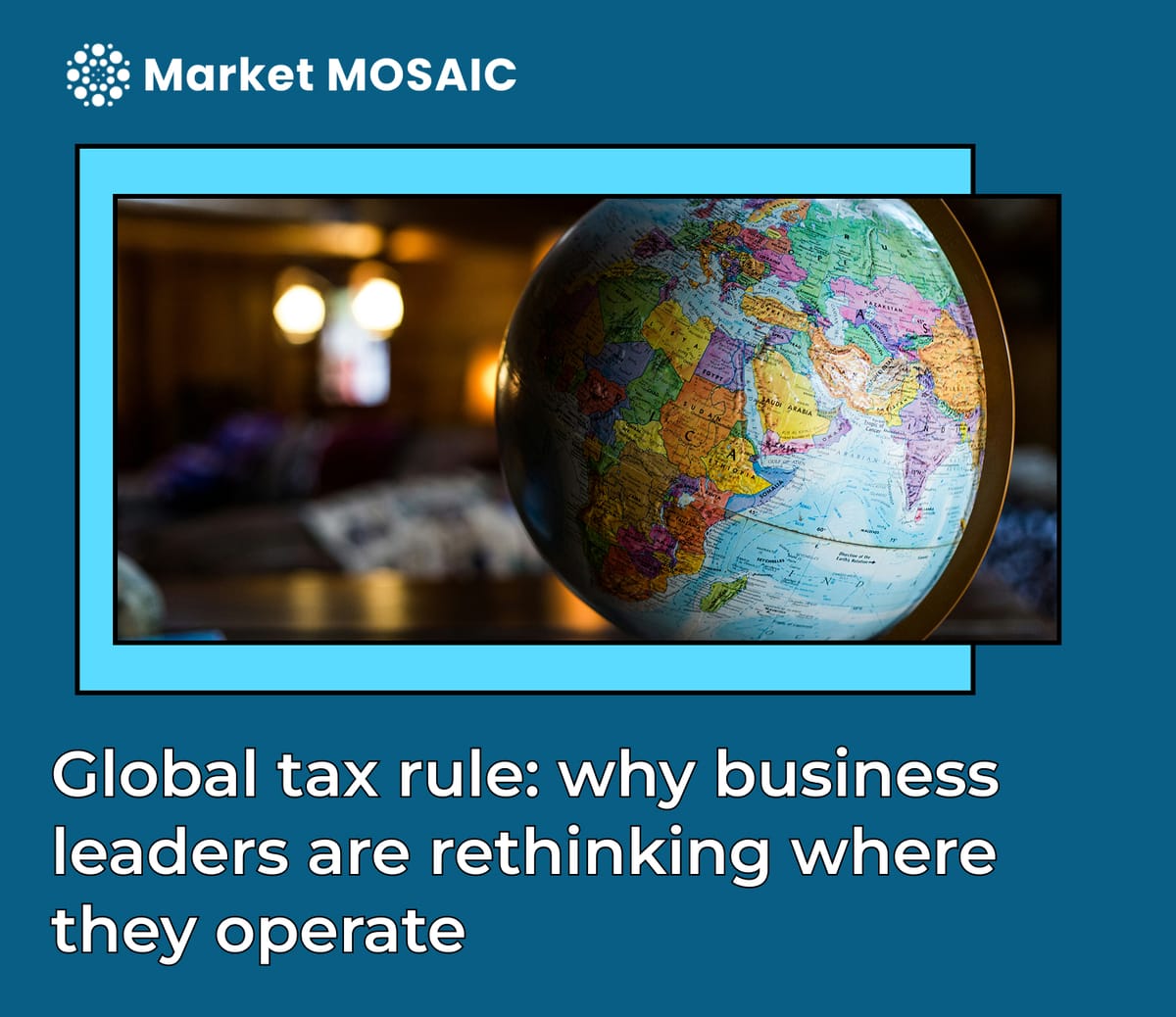Global tax rule: why business leaders are rethinking where they operate
Corporate tax policy is no longer just a backend issue,it’s shaping where businesses operate and how much consumers pay. As tax competition intensifies, small companies are relocating to stay competitive, making tax strategy a new driver of global pricing and growth.

For decades, corporate taxes were seen as the cost of doing business static, country-bound, and largely background noise for global expansion strategies. But that status quo is being upended.
Today, corporate tax policy is no longer just a line item, it’s a competitive weapon. As countries battle for investment and companies hunt for operational efficiency, a new wave of global tax competition is intensifying, redrawing the map of where businesses choose to locate, hire, and sell.
What’s changed? The OECD’s proposed global minimum tax deal, led by more than 140 countries is challenging the longstanding model of jurisdictions luring businesses through ultra-low tax rates. Meanwhile, smaller economies are pushing back, insisting that tax sovereignty is vital for attracting capital and accelerating local development. At the same time, borderless digital businesses are exposing the limits of traditional tax codes built for a manufacturing age.
In this new environment, small and mid-sized businesses particularly those with international aspirations must now factor in tax geography as part of their growth playbook, or risk falling behind. Our latest data reveals just how much that map is already shifting.
When tax codes decide what we pay
A new analysis of corporate tax burdens across 132 countries reveals a striking economic fault line, one that’s increasingly determining where businesses operate, how they price, and how competitive they remain in global markets.
At the extremes, small businesses face tax rates ranging from 0% in the Bahamas, Bahrain, and the UAE to a steep 40% in Guyana. Economic powerhouses fall in the middle: the U.S. at 21%, Germany at 15.83%, and China now the world’s manufacturing anchor at just 5%, a rate that has helped reinforce its global dominance in cost-sensitive industries.
But this isn’t just a story about national policy. It’s about business strategy. And ultimately, consumer impact
How global rates influence local prices
Beneath these numbers lies a growing strategic trend: tax arbitrage. Companies are increasingly repositioning operations or profit centers in jurisdictions with more favorable tax regimes not merely for compliance savings, but as a tactic to remain price-competitive.
Data shows that companies operating in high-tax countries are 34% more likely to pass on costs to consumers in the form of higher pricing. In contrast, businesses headquartered in low-tax jurisdictions are 23% more price-competitive in global markets, enabling them to undercut rivals and expand market share.
This has wide-reaching implications. As firms respond to tax pressures by optimizing location and structure, consumers are indirectly shaped by boardroom decisions made half a world away. Products may cost more or less depending not on materials or logistics, but on a nation’s tax code.
Insight for business leaders
For business leaders, this is not a backend finance issue, it’s now a front-facing strategic lever.
As pricing power becomes more fragile in inflation-sensitive markets, tax optimization becomes a vital tool for maintaining growth, profitability, and competitive edge. Especially for founders scaling across borders, selecting the wrong headquarters or payment processing hub could mean losing a 10–15% margin edge before products even reach consumers.
The landscape is evolving fast. Countries once considered peripheral are becoming tax-friendly tech hubs. Established economies are tightening enforcement while struggling to modernize tax frameworks. And every decision a company makes about structure where it bills, books, or builds can now echo through its valuation, customer acquisition costs, and long-term viability.
What we're witnessing is a scramble for leverage. Tax policy has become the new economic development strategy and a silent force behind startup ecosystems, regional manufacturing surges, and capital migration.
Meanwhile, tax-savvy businesses aren’t waiting. They're adapting. They're choosing countries with long-term incentives, digital-friendly tax laws, and stable fiscal environments. In doing so, they're quietly reshaping the global business landscape, not through product innovation alone, but through geographic foresight.





